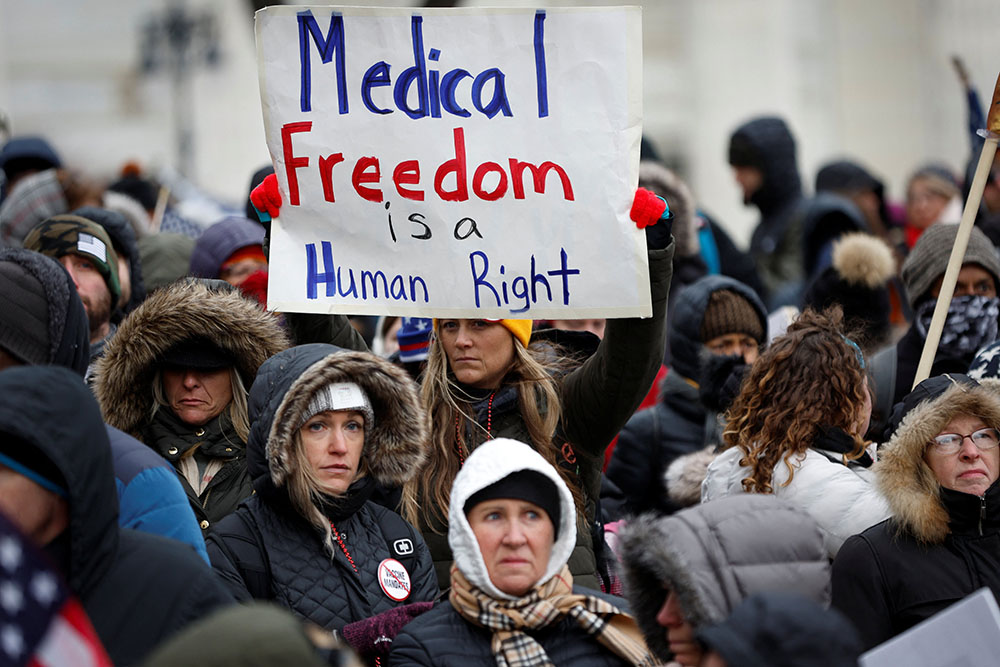
People in Albany, New York, demonstrate against COVID-19 vaccine mandates Jan. 5. (CNS/Reuters/Mike Segar)
The Supreme Court in a 6-3 decision Jan. 13 blocked a rule by the Biden administration that would have required employees at large businesses to show proof of a COVID-19 vaccination or wear masks and get tested each week for the coronavirus.
In a separate 5-4 decision issued the same day, the court said the vaccine mandate for most health care workers could go into effect.
The rule for employees, at businesses with more than 100 employees, was issued last fall by the Occupational Safety and Health Administration, which estimated the requirement would affect about 80 million workers. OSHA also said the rule would have saved thousands of lives and prevented hundreds of thousands of people from hospitalizations.
In an unsigned opinion, the justices said what many of them had expressed in oral arguments Jan. 7 in the emergency hearing about this mandate: that the administration was overstepping its authority.
"OSHA has never before imposed such a mandate. Nor has Congress. Indeed, although Congress has enacted significant legislation addressing the COVID-19 pandemic, it has declined to enact any measure similar to what OSHA has promulgated here," the justices wrote.
In a joint dissent, Justices Stephen Breyer, Elena Kagan and Sonia Sotomayor disagreed, saying the government agency was acting within its authority, unlike the nation's high court, which they described as "lacking any knowledge of how to safeguard workplaces" while it remained "insulated from responsibility for any damage it causes."
Advertisement
The three justices disputing the court's ruling for businesses said that "in the face of a still-raging pandemic, this court tells the agency charged with protecting worker safety that it may not do so in all the workplaces needed."
They also said the court was undercutting the ability of federal officials to "protect American workers from grave danger."
The OSHA rule for large businesses had been challenged by several states and businesses, and lower courts had initially stopped the requirement from moving forward.
In lifting a stay on the regulation, a three-judge panel of the U.S. Court of Appeals for the 6th Circuit had called the OSHA rule an "important step in curtailing the transmission of a deadly virus."
In its separate decision on health care workers Jan. 13, the Supreme Court said the requirement that these workers — who treat Medicare and Medicaid patients and need to be vaccinated against COVID-19 — could go into effect.
That requirement, which has medical and religious exceptions, had been blocked for 24 states by two federal appeals courts.
Justices Clarence Thomas and Samuel Alito, who were among the four dissenting from the majority, wrote that the "challenges posed by a global pandemic do not allow a federal agency to exercise power that Congress has not conferred upon it."




